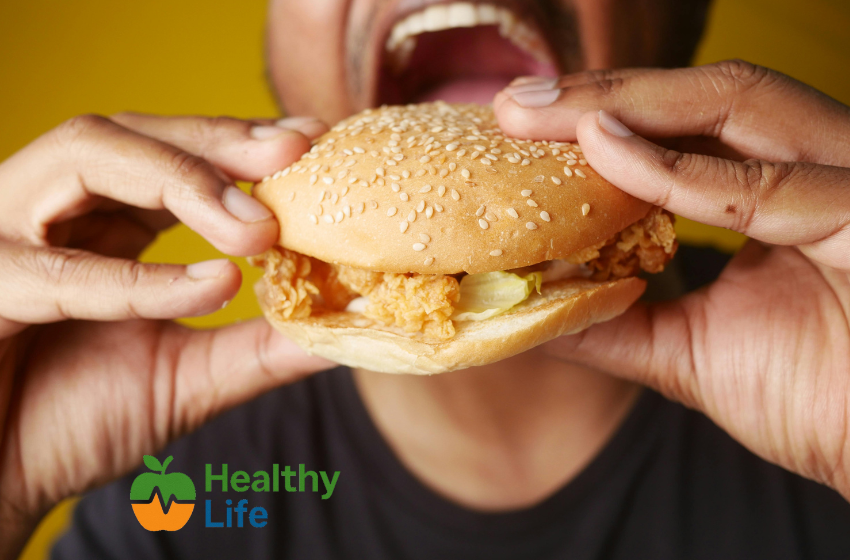Managing Food Cravings: A Healthy Habit for Better Living
- Nutrition & Diet
- August 31, 2025
- 128
- 5 minutes read

Understanding and Managing Food Cravings: A Healthy Habit for Better Living
Why Do We Crave Certain Foods?
We often encounter this sensation when we open the refrigerator, glance into the pantry, or spot our favorite chocolate ice cream, leading to an overwhelming desire to indulge. Food cravings can arise unexpectedly and frequently lead us to make poor dietary choices. However, there is no need for concern! It is essential to first comprehend the underlying causes of these cravings and implement effective strategies for managing them. We must harness our willpower to overcome these cravings and opt for healthier alternatives.
Let’s Try to Understand the Nature of Food Cravings
To begin with, it is essential to comprehend the nature of food cravings. We often experience strong desires for our favorite foods, which can occur unexpectedly, regardless of our location. Various factors contribute to these cravings, including:
- Emotional influences such as stress
- Psychological aspects like nutritional deficiencies or hormonal fluctuations
Studies indicate that food cravings are closely linked to the brain’s reward and pleasure systems. When we indulge in our preferred dishes and fulfill these cravings, our brain releases dopamine- the hormone associated with pleasure- leading to a sense of happiness.
Psychological and Emotional Factors That Cause Food Cravings
Resistance
One reason is that our body seeks specific foods that we may be trying to resist. For instance, if you choose to eliminate sweets from your diet, your body may begin to crave sugary foods due to the abrupt cessation of their intake, as it has not adjusted to this sudden change.
What Should You Do Next?
It’s advisable to avoid making abrupt changes to your diet. Instead, opt for a healthier substitute for the food you desire. For example, choose dark chocolate over unhealthy desserts to satisfy your sweet tooth more nutritiously.
Stress and Anxiety
Feelings such as stress, anxiety, sadness, or nostalgia often lead to a desire to eat as a coping mechanism. Have you ever felt compelled to indulge in ice cream, pizza, burgers, or fried foods after a challenging day? This is emotional eating driven by cravings.
Advertisements
One significant factor contributing to our food cravings is the powerful influence of advertisements from food brands. When we walk past a bakery or fast-food chain, these ads can intensify our desire for those foods. Additionally, enticing spices and flavors can trigger a strong urge to eat.
How to Manage Your Food Cravings
- Find the Root Cause: Monitor your cravings and understand their underlying causes. Are you stressed, bored, or truly hungry? Recognizing emotional or psychological triggers can help you discover healthier ways to satisfy your cravings.
- Pick Healthy Options: If you’re craving sweets, opt for dark chocolate instead of sugary desserts. For salty cravings, choose salted nuts instead of chips. Healthier alternatives can satisfy cravings while supporting better nutrition.
- Plan Your Meals: Ensure your meals are well-balanced with proteins, carbohydrates, fats, vitamins, and minerals. Fiber-rich foods help you feel full longer and prevent unhealthy snacking.
- Reduce Stress: Stress often leads to emotional eating. Engage in physical activities like exercise, meditation, or hobbies to improve your mood and reduce cravings.
- Never Compromise With Sleep: Lack of sleep can disrupt hormones and trigger cravings. Aim for 6–7 hours of quality sleep daily to regulate your appetite.
- Practice Mindful Eating: Savor each bite and focus on flavors. Mindful eating helps you recognize true hunger versus external triggers and encourages healthier eating habits.
Guru Tip for Food Cravings: Pause Before You Snack
Next time a craving hits, try the “HACK”:
Are you Hungry, Angry, Lonely, or Tired?
- Most cravings aren’t about food- they’re about how you’re feeling.
If you’re truly hungry, go for a balanced snack with protein and fiber. - If it’s emotional, try a quick walk, a call to a friend, or a glass of water first.
Trick That Works: Brushing your teeth or chewing minty gum can trick your brain into thinking snack time is over.
